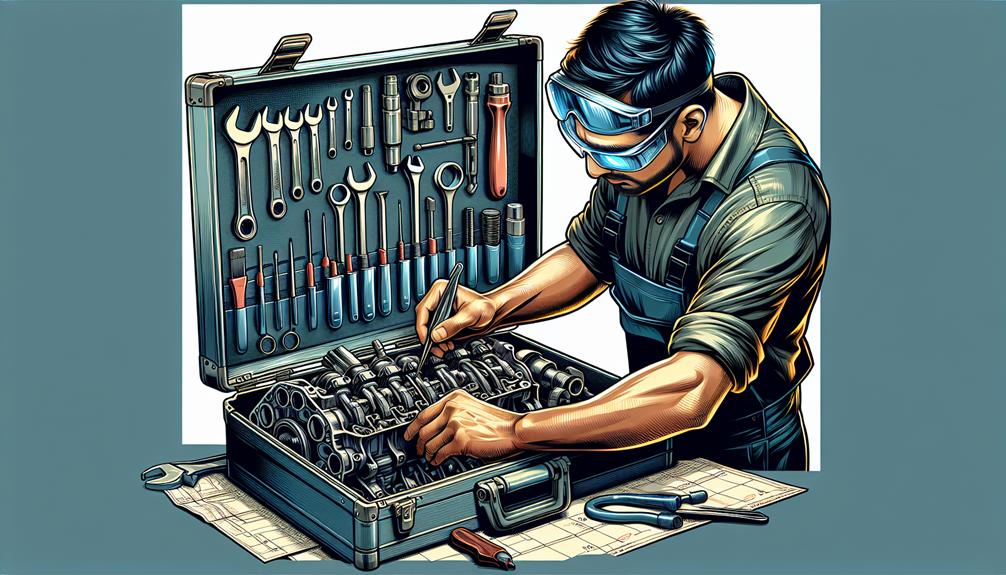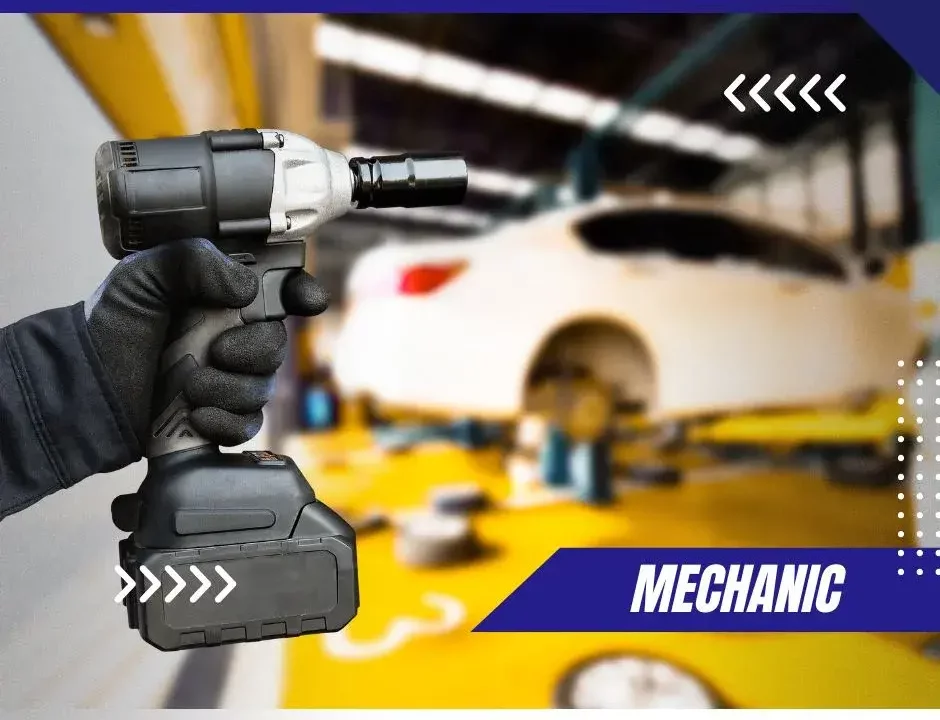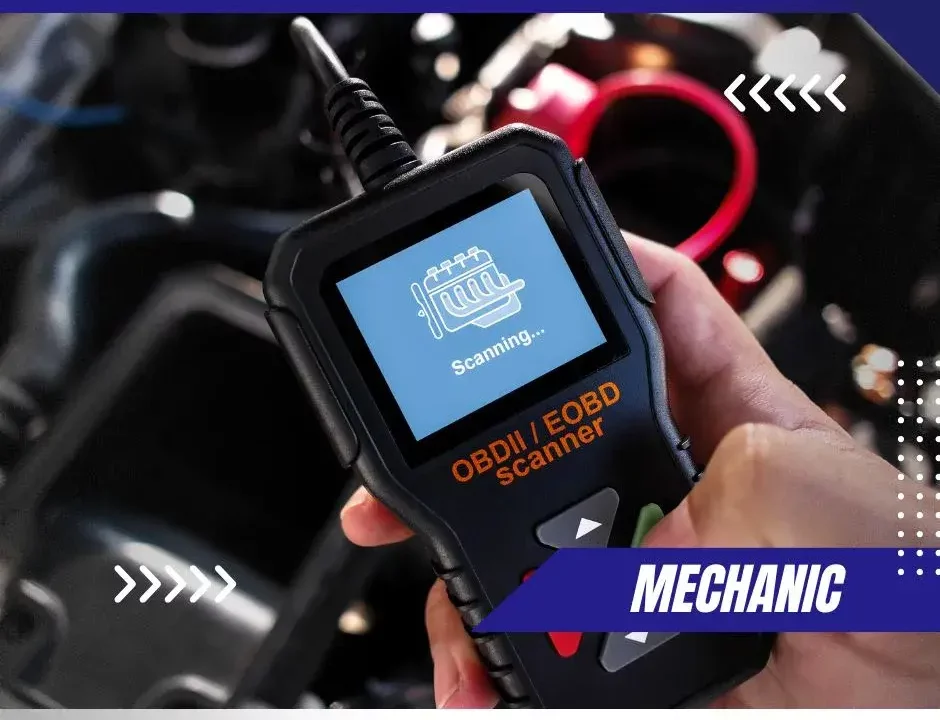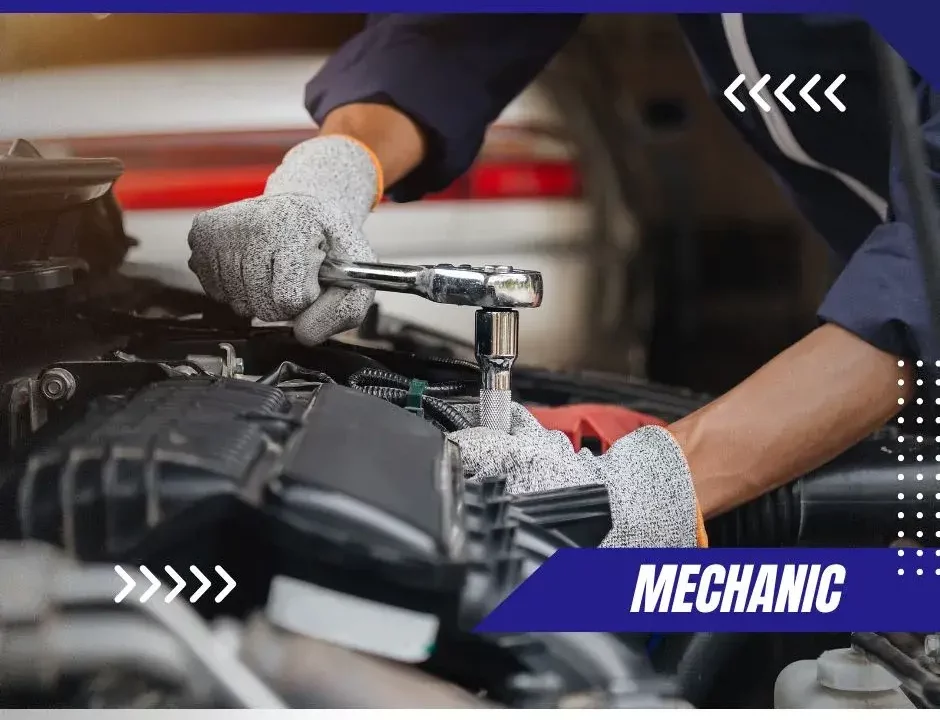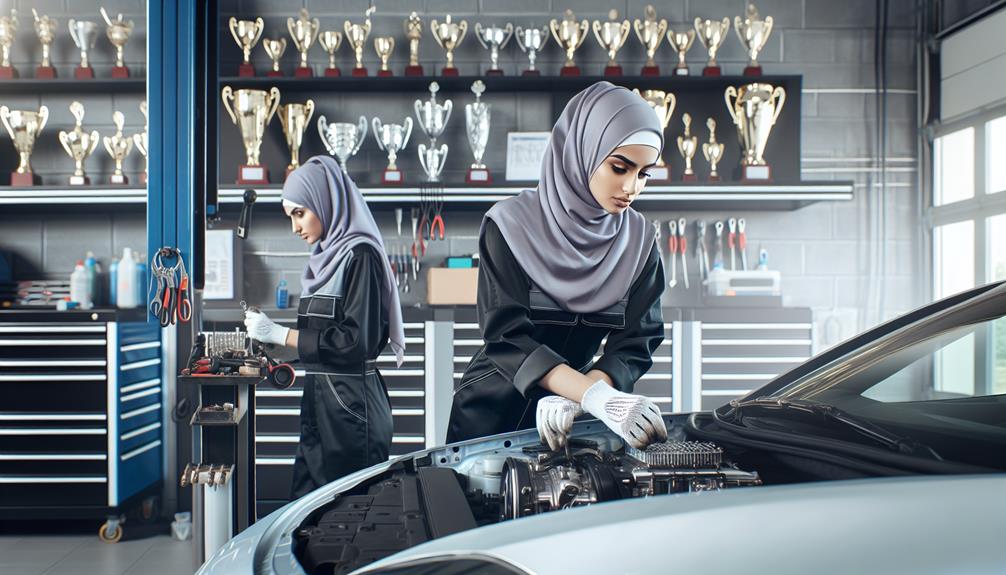
How Professionalism Enhances Your Reputation as a Mechanic
May 17, 2024Cliffside Views and Coastal Trails: Discovering the Beauty of Point Dume
May 19, 2024Just as a well-oiled machine runs smoothly, so too must a mechanic’s professional attributes be finely tuned for effective performance.
You may think it’s all about getting your hands dirty and fixing cars, but there’s more to being a mechanic than meets the eye. Constant learning, technical prowess, excellent communication, unwavering integrity, and a problem-solving mindset–these are the five essential traits you need to cultivate.
But how can you refine these qualities and seamlessly integrate them into your daily work? Let’s peel back the layers to find the answers.
Emphasizing Constant Learning
In this ever-evolving industry, it’s crucial for you as a mechanic to commit to a mindset of ongoing learning, constantly updating and refining your knowledge and skills to stay on top of the latest advancements and techniques.
You’re not just a handyman; you’re a vital part of a dynamic community that values expertise, innovation, and precision. So, it’s vital to keep your toolbox of knowledge well-stocked and up-to-date.
Subscribe to industry magazines, attend webinars, and participate in relevant workshops. Stay connected with your peers, sharing experiences and solutions. Remember, you’re not alone in this journey; you’re part of a broader network of professionals committed to excellence.
Embrace this continuous learning culture, and you’ll become a mechanic others look up to.
Mastery of Technical Skills
Beyond the dedication to constant learning, it’s crucial that you master the technical skills that form the bedrock of your profession as a mechanic. This is where the rubber meets the road, where theoretical knowledge becomes practical expertise. It’s not enough to know what each tool does; you must become adept at using them, developing a feel for their weight, balance, and purpose.
It’s like learning a language; fluency comes from practice. Your hands should know the difference between a ratchet and a wrench, between a spark plug and a fuel injector. You should be able to diagnose a car’s problem simply by its sound, its smell, its performance. This level of proficiency doesn’t come overnight; it’s the result of years of dedication.
But remember, every expert was once a beginner. You’re part of a proud tradition, and with consistent effort, you’ll reach your goal.
Developing Excellent Communication
While your hands may be fluent in the language of tools and engines, it’s equally important to develop your proficiency in human communication. As a mechanic, you’re part of a team and your ability to relay information accurately and clearly is pivotal.
Here are some key areas to improve in:
* Verbal Communication: This includes
* Explaining complex technical issues in a way that non-mechanics can understand
* Active listening to clients and colleagues
* Written Communication: This consists of
* Drafting precise, error-free service reports
* Writing clear, concise emails
* Non-verbal Communication: This involves
* Using body language that signals openness and attentiveness
* Understanding the non-verbal cues of others
Embodying Professional Integrity
Unquestionably, one of the most vital qualities you should possess as a mechanic is professional integrity. This isn’t just about honesty; it’s about consistently adhering to moral and ethical principles. You’re entrusted with people’s prized assets. They’re not just depending on your expertise but also on your honesty in assessing and fixing their vehicle’s issues.
Show up on time, respect your clients’ time, and don’t overcharge or perform unnecessary repairs. Transparency is indispensable in building trust. Your word should be your bond.
Cultivating Problem-Solving Mindset
Just as your integrity is vital, so is your ability to effectively solve problems, a skill indispensably intertwined with the daily demands of a mechanic’s profession. You’re constantly faced with a variety of challenges, each requiring a unique solution. As such, cultivating a problem-solving mindset isn’t just beneficial—it’s essential.
To develop this mindset:
* Stay curious. Never stop learning.
* Attend workshops and seminars.
* Keep up with industry trends.
* Be patient and thorough.
* Never rush diagnostics.
* Double-check your work.
* Embrace failure as part of the learning process.
* Learn from mistakes.
* Turn failures into opportunities for growth.

